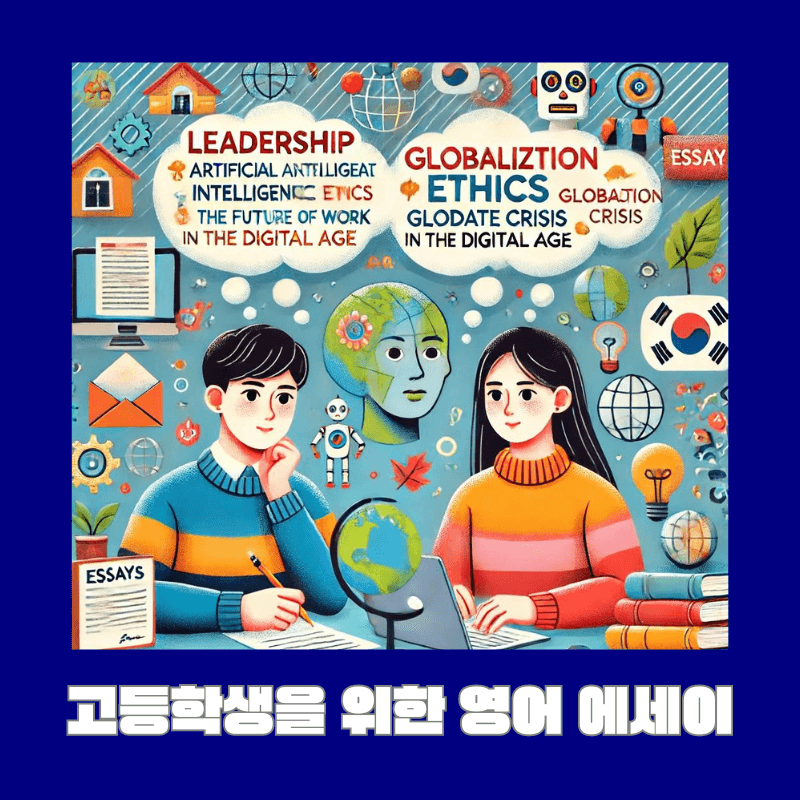티스토리 뷰

Introduction 서론
As science and technology continue to evolve at an unprecedented pace, the future of healthcare stands on the brink of a revolutionary transformation. From artificial intelligence to personalized medicine, the healthcare industry is undergoing fundamental changes that will redefine how we diagnose, treat, and prevent disease. Yet, while these developments bring immense potential for improving health outcomes, they also raise profound ethical and societal questions. In this essay, I will explore the most significant advancements expected in healthcare, as well as the challenges we must confront to ensure these innovations benefit all of humanity.
과학과 기술이 전례 없는 속도로 발전하면서, 의료의 미래는 혁명적인 변화의 문턱에 서 있습니다. 인공지능부터 개인 맞춤형 치료에 이르기까지, 의료 산업은 질병을 진단하고 치료하며 예방하는 방식을 근본적으로 바꾸는 중입니다. 이러한 발전은 건강 결과를 향상시킬 엄청난 가능성을 지니고 있지만, 동시에 깊은 윤리적·사회적 질문을 제기합니다. 이 에세이에서는 의료 분야에서 기대되는 주요 발전과, 이러한 혁신이 인류 전체에 혜택이 되도록 하기 위해 우리가 직면해야 할 과제들을 살펴보겠습니다.
Technological Innovation 기술 혁신
One of the most promising developments in future healthcare is the integration of artificial intelligence (AI). AI systems are already being used to analyze X-rays, predict disease progression, and recommend treatment plans. In the near future, these systems may become indispensable tools for physicians, improving both speed and accuracy in diagnostics. Similarly, robotic-assisted surgeries allow for greater precision and less invasive procedures, reducing recovery time for patients.
Another major leap is personalized medicine. By analyzing an individual's genetic profile, doctors can now tailor treatments to match a person’s unique biology. This not only enhances the effectiveness of treatments but also minimizes side effects. Telemedicine and wearable technology are further revolutionizing care by making it more accessible and continuous, allowing patients to manage chronic conditions from home.
미래 의료에서 가장 유망한 발전 중 하나는 인공지능(AI)의 통합입니다. 이미 AI 시스템은 엑스레이 분석, 질병 진행 예측, 치료 계획 추천 등 다양한 분야에 사용되고 있으며, 가까운 미래에는 의사에게 필수적인 도구로 자리 잡을 수 있습니다. 이는 진단의 속도와 정확성을 동시에 향상시켜줍니다. 마찬가지로 로봇 수술은 더욱 정밀하고 덜 침습적인 수술을 가능하게 해 환자의 회복 시간을 단축시킵니다.
또 다른 주요 도약은 개인 맞춤형 의학입니다. 환자의 유전 정보를 분석함으로써, 의사는 개인의 생물학적 특성에 맞춘 치료를 제공할 수 있게 되었습니다. 이는 치료 효과를 높일 뿐만 아니라 부작용도 최소화합니다. 원격 진료와 웨어러블 기술은 환자가 집에서 만성 질환을 관리할 수 있도록 함으로써 의료 서비스를 더욱 접근 가능하고 연속적으로 만들며, 의료 혁신을 가속화하고 있습니다.
Ethical and Social Considerations 윤리적·사회적 고려
However, with these breakthroughs come serious concerns. Data privacy is at the forefront of ethical debates. As AI relies on vast amounts of patient data to function effectively, questions arise about who owns this data and how securely it is stored. Moreover, algorithms can inherit biases from their developers or data sources, potentially leading to discriminatory outcomes in diagnosis or treatment.
Equity in access to advanced healthcare is another major challenge. High-tech treatments and devices are often expensive and limited to wealthy individuals or countries. If not addressed, this divide may widen existing healthcare disparities, leaving vulnerable populations behind. Additionally, as machines take on more roles traditionally performed by humans, there is a risk of reducing the personal, empathetic nature of patient care.
하지만 이러한 돌파구에는 심각한 우려도 따릅니다. 데이터 프라이버시는 윤리적 논쟁의 중심에 있습니다. AI가 효과적으로 작동하려면 방대한 환자 데이터가 필요하기 때문에, 이 데이터의 소유권과 보안은 중요한 이슈가 됩니다. 또한 알고리즘은 개발자나 데이터 출처로부터 편향을 물려받을 수 있으며, 이로 인해 진단이나 치료에서 차별적 결과가 발생할 수 있습니다.
첨단 의료에 대한 접근의 형평성도 큰 과제입니다. 고급 기술과 장비는 종종 고가이며, 부유한 개인이나 국가에 국한되는 경우가 많습니다. 이러한 문제가 해결되지 않으면 기존의 의료 격차가 더 벌어질 수 있으며, 취약 계층은 뒤처질 수 있습니다. 또한, 인간이 수행하던 역할을 점점 기계가 대신하면서 환자 치료에서의 공감과 인간적인 면모가 줄어드는 위험도 존재합니다.
Global Preparedness 글로벌 대비
The COVID-19 pandemic revealed both the strengths and weaknesses of global healthcare systems. It showed how quickly medical innovation can occur under pressure, but also highlighted the need for stronger international cooperation. Future healthcare must be globally minded—nations must share data, coordinate responses, and invest in resilient systems that can withstand future crises.
코로나19 팬데믹은 전 세계 의료 시스템의 강점과 약점을 동시에 보여주었습니다. 압박 속에서도 의료 혁신이 얼마나 빠르게 일어날 수 있는지를 입증했지만, 동시에 더 강력한 국제 협력의 필요성을 드러냈습니다. 미래의 의료는 글로벌한 시각을 가져야 합니다. 각국은 데이터를 공유하고, 대응을 조율하며, 미래의 위기를 견뎌낼 수 있는 강건한 시스템에 투자해야 합니다.
Conclusion 결론
The future of healthcare holds extraordinary potential to enhance human health and well-being. Technological advancements such as AI, robotics, and personalized medicine are paving the way for more efficient, accurate, and individualized care. Nevertheless, these innovations must be implemented with caution, compassion, and a commitment to equity. As we move forward, we must ensure that the healthcare of tomorrow is not only smarter, but also more ethical, inclusive, and human-centered.
미래의 의료는 인간의 건강과 삶의 질을 향상시킬 엄청난 가능성을 품고 있습니다. AI, 로봇 기술, 개인 맞춤 의학과 같은 기술 발전은 보다 효율적이고 정확하며 개인화된 진료의 길을 열고 있습니다. 그러나 이러한 혁신은 신중함, 공감, 형평성에 대한 약속과 함께 이루어져야 합니다. 앞으로 나아가는 과정 속에서, 우리는 내일의 의료가 단순히 더 똑똑해지는 것만이 아니라, 더 윤리적이고 포용적이며 인간 중심적인 방향으로 나아가야 한다는 점을 잊지 말아야 합니다.
관련글
고등학생부터 성인을 위한 영어 에세이 작성 방법이 궁금하시면 다음 링크를 방문해 보세요.
더 자세한 영어 에세이 학년별 작성 팁이 궁금하시면 다음 링크를 참고하세요.
'영어에세이' 카테고리의 다른 글
| The Importance of Friendship 우정의 중요성 (0) | 2025.04.13 |
|---|---|
| A Trip to the Zoo 동물원 여행 (0) | 2025.04.06 |
| 📌 Title: Cultural Diversity in My Community: Benefits and Challenges 우리 지역 사회의 문화적 다양성: 장점과 도전 과제 (0) | 2025.03.23 |
| Tokyo: A City I Would Like to Visit 도쿄: 내가 방문하고 싶은 도시 (0) | 2025.03.16 |
| Colors Around Me 내 주변의 색깔들 (1) | 2025.03.09 |


